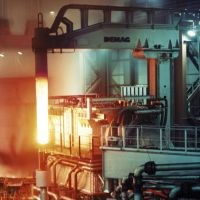(BRUSSELS) – The European Commission welcomed Friday the agreement by the G20’s Global Forum to wide-ranging policy solutions to tackle global steel over-capacity, to be implemented in 2018 and 2019.
According to the agreed package, Global Forum members must ensure market-based outcomes in the steel industry, refrain from market-distorting subsidies and other government support measures that contribute to overcapacity, provide a level playing field between state-owned and private companies, and enact effective adjustment polices.
This agreement spells out the market-distorting practices at the root of overcapacity and is underpinned by a robust monitoring mechanism on capacity and policy developments to track implementation in 2018 and 2019.
“The problem of excess capacity of steel has real effects on people’s lives especially those who become unemployed,” the EU’s Trade Commissioner Cecilia Malmstroem said at the meeting: “Today, we have agreed on an important and effective package to tackle the pressing issue of global steel overcapacity. These wide-ranging policy solutions will help create a level playing field and support EU growth and jobs.
“This is a global challenge, and it has to be dealt with accordingly,” she added. “In the run-up to the World Trade Organisation’s 11th Ministerial Conference in Buenos Aires, this success underlines the importance of effective multilateral cooperation to solve global problems. Of course, our work is not yet done. Now we need to walk the talk. Our industry, our workforce, our consumers and citizens depend on these commitments being carried out effectively. As co-chair of this Forum during next year, the EU will follow the implementation of these measures closely.”
The steel sector is a vital industry for the European Union’s economy and occupies a central position in global value chains, providing jobs for hundreds of thousands of European citizens.
The global surplus in steel-making capacity reached around 737 million metric tonnes in 2016, the highest ever seen. This has driven down steel prices to unsustainable levels in recent years and had a damaging impact on the steel sector, as well as related industries and jobs.
Launched in December 2016 after a call by G20 Leaders in the Hangzhou, the Forum was reinforced by the outcomes of the July 2017 G20 Hamburg Summit. The forum is facilitated by the OECD and reports to G20 ministers every year.
The Global Forum will continue meeting at least three times per year to monitor the implementation of the commitments.
Steel: Preserving sustainable jobs and growth in Europe – European Commission memo



